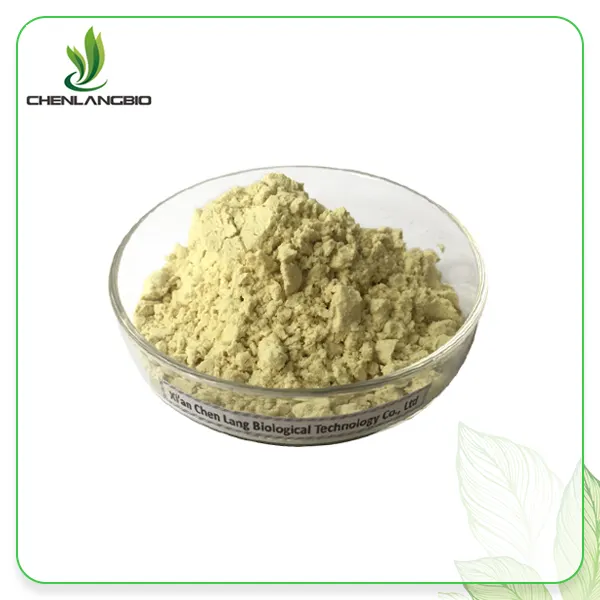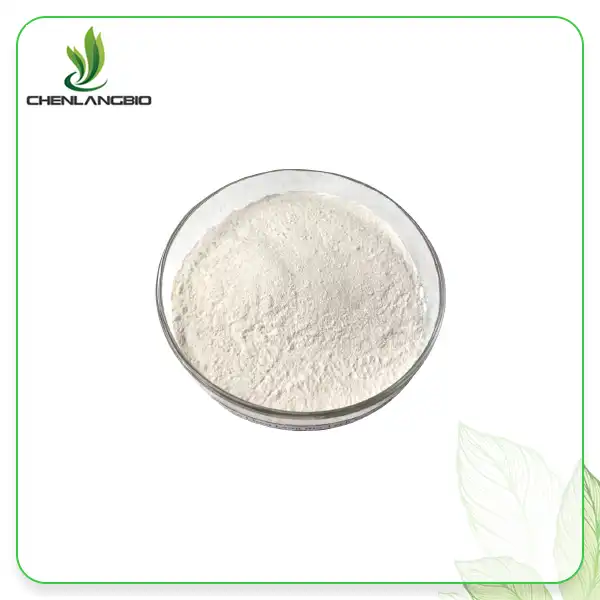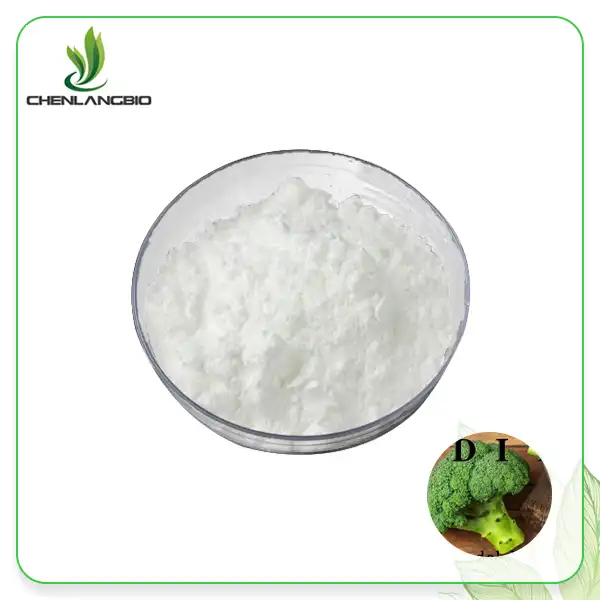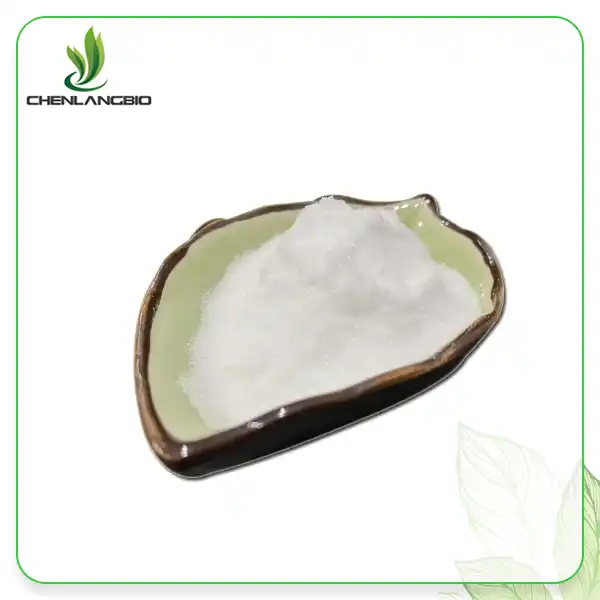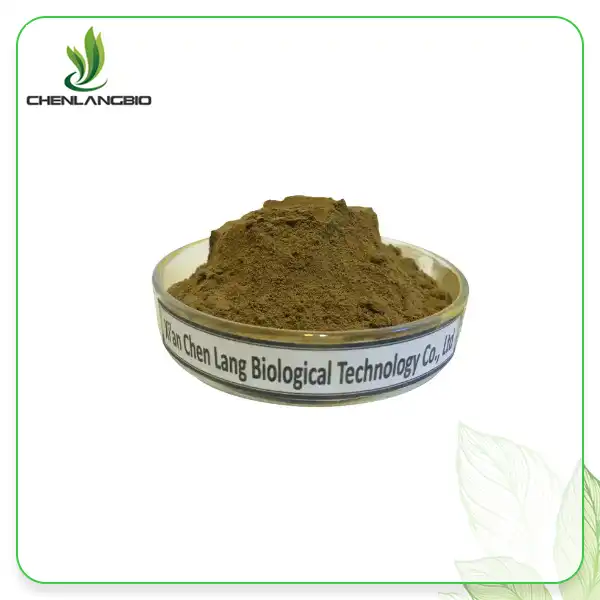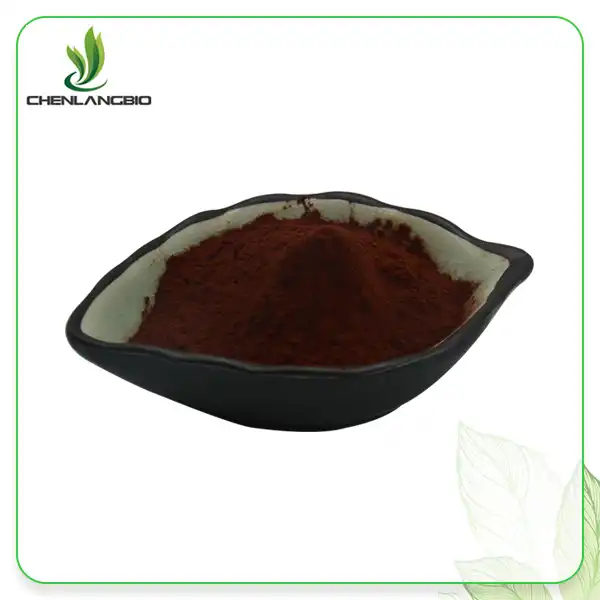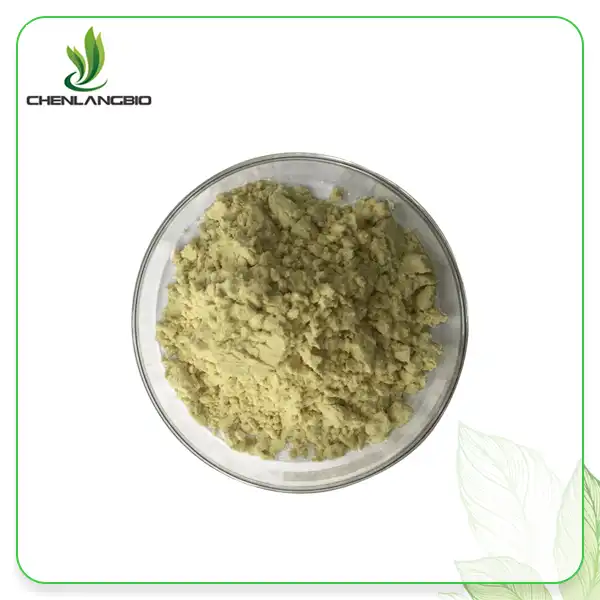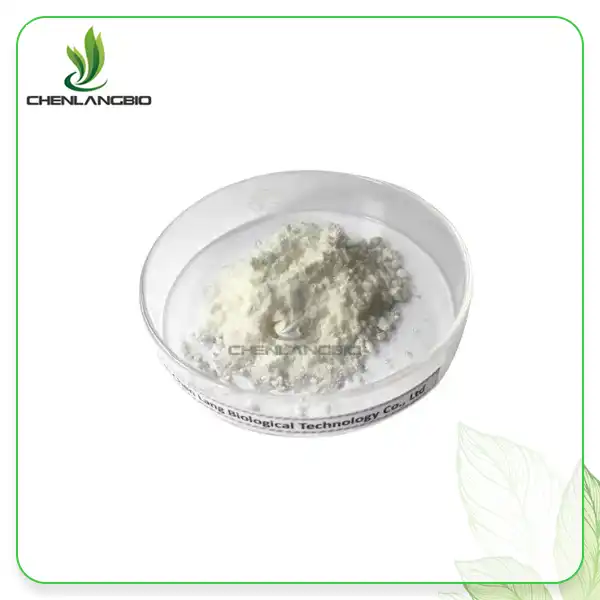Is PQQ Supplementation Safe?
2025-04-02 11:15:41
In the realm of nutritional supplements, pyrroloquinoline quinone (PQQ) has emerged as a compound of significant interest for its potential health benefits. As consumers increasingly seek natural solutions for enhancing wellbeing, questions about the safety profile of PQQ supplementation have become paramount. This article explores the safety aspects of PQQ supplementation, delving into scientific research, recommended dosages, and potential considerations for different population groups. Understanding whether PQQ supplementation is safe requires examining not just its potential benefits but also how it interacts with the human body, its established safety parameters, and the quality control measures implemented by reputable manufacturers like Xi An Chen Lang Bio Tech Co., Ltd.
Understanding PQQ and Its Safety Profile
The Biochemical Nature of PQQ
Pyrroloquinoline Quinone is a naturally occurring redox cofactor that functions quite differently from traditional vitamins and minerals. Its unique molecular structure enables it to participate in numerous biochemical reactions within the body, particularly those involving energy metabolism and cellular protection. Found in small quantities in various foods including fruits, vegetables, and fermented products, PQQ plays a role in promoting mitochondrial biogenesis - the creation of new mitochondria in aging cells. This biochemical activity is fundamental to understanding its safety profile. Unlike synthetic compounds that might introduce foreign elements to biological systems, PQQ operates within existing metabolic pathways. Research indicates that as a redox catalyst, PQQ can undergo thousands of redox cycles before being degraded, making it extraordinarily efficient compared to other antioxidants. This stability and integration with natural biological processes contribute significantly to its favorable safety profile when used as a supplement. The biochemical mechanisms through which PQQ functions suggest minimal risk of disrupting normal physiological processes, which is a primary concern when evaluating supplement safety.
Clinical Studies on PQQ Safety
The safety of Pyrroloquinoline Quinone has been evaluated through various clinical studies designed specifically to identify potential adverse effects or toxicity. In a landmark 2012 study, researchers conducted a randomized, double-blind, placebo-controlled trial where participants received either PQQ supplementation or a placebo for 12 weeks. The results showed no significant adverse effects at doses up to 20mg per day, with all blood parameters, liver function tests, and kidney function markers remaining within normal ranges. Another comprehensive safety assessment published in 2016 examined the genotoxicity and acute toxicity of PQQ, finding no mutagenic potential or toxic effects even at high doses. These clinical evaluations align with earlier animal studies that established the No Observed Adverse Effect Level (NOAEL) for PQQ at considerably higher levels than those typically used in supplementation. The consistency of safety findings across different research methodologies and subject populations provides strong evidence supporting the safety of PQQ within recommended dosage guidelines. These studies have been instrumental in PQQ's regulatory approval as a dietary supplement in various jurisdictions, including its 2009 approval in the United States and its 2018 approval in the European Union.
Regulatory Approvals and Safety Standards
The journey of Pyrroloquinoline Quinone from laboratory discovery to approved dietary supplement involved rigorous regulatory scrutiny. In 2009, the United States became the first major market to approve PQQ for use in dietary supplements, following comprehensive safety evaluations. This milestone was reached after reviewing extensive toxicological data, including acute and chronic exposure studies. Subsequently, in 2018, the European Union approved PQQ sodium salt (PQQ-2Na+) as a component in health foods, though with specific exclusions for pregnant women, lactating women, and children. These regulatory approvals establish maximum daily intake levels, typically set at ≤20 mg/day for adults. The regulatory framework also specifies appropriate applications, such as in beverages (with limitations of 40mg/kg). These guidelines reflect the conservative approach taken by regulatory authorities when approving new dietary ingredients. Behind these approvals lies a substantial body of scientific evidence demonstrating PQQ's safety within specified parameters. The alignment of safety standards across major regulatory bodies provides additional confidence in the safety profile of PQQ supplementation when products are manufactured in compliance with these established standards and used according to recommendations.
Quality Control in PQQ Supplementation
Manufacturing Standards and Purity
The safety of Pyrroloquinoline Quinone supplementation is inextricably linked to manufacturing standards and product purity. Companies like Xi An Chen Lang Bio Tech Co., Ltd. implement rigorous quality control processes that begin with the selection of raw materials and continue through every stage of production. The purity of PQQ supplements is particularly crucial, as the presence of contaminants or adulterants could compromise safety regardless of the inherent safety of PQQ itself. Industry leaders maintain laboratory facilities equipped with high-performance liquid chromatography-evaporative light scattering detector (HPLC-ELSD), atomic fluorescence spectrometer (AFS), and ultraviolet-visible spectrophotometer (UV) technology to verify the purity levels of their PQQ products. The gold standard for commercial PQQ supplements is a purity level of ≥99%, which minimizes the risk of unintended components. Additionally, advanced production methodologies such as column separation technology and membrane separation technology ensure the removal of potential impurities during the manufacturing process. These sophisticated quality control measures are essential safeguards that contribute significantly to the overall safety profile of PQQ supplementation. When evaluating the safety of any PQQ supplement, consumers should consider whether the product comes from manufacturers adhering to these stringent purity standards.
Stability and Shelf Life Considerations
The stability of pyrroloquinoline quinone during storage and its shelf life characteristics represent important but often overlooked safety considerations. PQQ's molecular structure can be vulnerable to degradation when exposed to certain environmental conditions, potentially leading to reduced efficacy or the formation of undesirable compounds. Quality manufacturers address this challenge through specialized packaging designed to protect PQQ from moisture, oxygen, and UV radiation – all factors that can accelerate degradation. Typically, high-quality PQQ powder is packaged in aluminum foil bags or other moisture-proof, UV-resistant containers that maintain stability throughout the product's shelf life. Under appropriate storage conditions, premium PQQ supplements maintain their integrity for up to three years from the date of manufacture. The color of pure PQQ powder – ranging from red to purple – can serve as a visual indicator of quality and freshness. Stability testing is another critical component of quality assurance, with manufacturers conducting accelerated aging studies to confirm that their products remain safe and effective throughout the specified shelf life. These stability considerations directly impact safety because degraded PQQ could potentially have different biological effects than the intact molecule. Therefore, proper storage and adherence to expiration dates contribute meaningfully to the overall safety profile of PQQ supplementation.
Third-Party Testing and Certification
The ultimate verification of Pyrroloquinoline Quinone supplement safety comes through independent third-party testing and certification. Reputable manufacturers subject their products to evaluation by independent laboratories that have no financial interest in the testing outcomes. These third-party assessments typically examine not only the presence and concentration of PQQ but also screen for potential contaminants including heavy metals, pesticides, microbial pathogens, and solvent residues. Companies committed to the highest safety standards often pursue and maintain multiple certifications that reflect their adherence to internationally recognized quality benchmarks. These may include ISO 9001-2015 for quality management systems, ISO 22000 for food safety management, FAMI-QS certification for feed additives, and BRC (British Retail Consortium) certification for food safety. Additionally, religious certifications such as HALAL and Kosher indicate compliance with specific dietary standards that may be important to certain consumer groups. Each of these certifications requires regular audits and inspections, creating multiple layers of quality verification that collectively enhance consumer confidence in product safety. When evaluating the safety of PQQ supplementation, consumers should look for products that have undergone this kind of comprehensive third-party scrutiny, as it provides objective evidence of safety that goes beyond manufacturer claims.
Practical Considerations for PQQ Consumers
Appropriate Dosage Guidelines
Determining the appropriate dosage is fundamental to the safe use of Pyrroloquinoline Quinone supplements. Scientific literature and regulatory approvals converge on recommended daily intake levels that maximize potential benefits while maintaining a substantial margin of safety. For most healthy adults, the consensus recommendation is a daily dosage of between 10 and 20 mg of PQQ. This range is supported by clinical studies that have demonstrated both efficacy and safety at these levels. The European Union's official position, established in 2018, specifically recommends that consumption should not exceed 20 mg per day. This conservative approach provides an additional safety buffer against potential dose-dependent effects. It's worth noting that PQQ supplement formulations typically use PQQ sodium salt (PQQ-2Na+) rather than pure PQQ due to its enhanced solubility characteristics, which may affect the calculation of actual PQQ content. Body weight, age, and overall health status may also influence individual responses to PQQ supplementation, though current dosage guidelines do not typically suggest adjustments based on these factors. For those new to PQQ supplementation, starting at the lower end of the recommended dosage range (around 10 mg daily) allows for assessment of individual tolerance before potentially increasing to the upper range limit. This gradual approach represents a prudent strategy for introducing any new supplement, including Pyrroloquinoline Quinone, into one's health regimen.
Potential Interactions and Contraindications
When evaluating the safety of pyrroloquinoline quinone supplementation, understanding potential interactions with medications and identifying appropriate contraindications becomes essential for specific populations. While PQQ has demonstrated an excellent standalone safety profile, limited research exists regarding its interactions with pharmaceutical drugs or other dietary supplements. Theoretical considerations suggest that due to its antioxidant properties, PQQ might interact with medications that rely on oxidative processes or that have their own antioxidant mechanisms. Consequently, individuals taking medications for cardiac conditions, blood thinning agents, or certain antidepressants should consult healthcare providers before initiating PQQ supplementation. Current regulatory guidelines explicitly contraindicate PQQ supplementation for pregnant women, lactating mothers, infants, and young children. This precautionary stance reflects the limited research on PQQ's effects during developmental stages rather than evidence of harm. Additionally, individuals with impaired liver or kidney function should approach PQQ supplementation with caution, as these organs play crucial roles in the metabolism and elimination of dietary supplements. People with known hypersensitivities to other quinone compounds might theoretically have cross-reactivity with PQQ, though documented allergic reactions are exceedingly rare. As with any bioactive compound, the potential for idiosyncratic reactions exists, highlighting the importance of introducing PQQ gradually while monitoring for unexpected responses.
Special Population Considerations
The safety profile of Pyrroloquinoline Quinone may vary across different population groups, necessitating special considerations for certain demographics. Elderly individuals, who often experience declining mitochondrial function and increased oxidative stress, represent a population that might particularly benefit from PQQ supplementation. Preliminary research suggests that older adults tolerate standard PQQ dosages well, with some studies indicating potential cognitive and cardiovascular benefits specific to this age group. However, the presence of multiple medications commonly used by elderly individuals raises the importance of medical consultation before beginning supplementation. Athletes and physically active individuals constitute another special population with unique considerations. The potential mitochondrial benefits of PQQ align well with the increased energy demands of athletic training, but questions remain about how PQQ might interact with the specific physiological adaptations that occur during intense exercise regimens. While no evidence suggests safety concerns in this population, research specifically examining PQQ in athletic contexts remains limited. Individuals with chronic health conditions, particularly those affecting mitochondrial function or oxidative balance (such as diabetes, cardiovascular disease, or neurodegenerative disorders), should approach PQQ supplementation with individualized medical guidance. The potential therapeutic effects of Pyrroloquinoline Quinone in these conditions are being actively researched, but self-supplementation without medical oversight may not be appropriate given the complex pathophysiology involved.
Conclusion
In summary, pyrroloquinoline quinone supplementation demonstrates a favorable safety profile when used within recommended guidelines. The extensive research, regulatory approvals, and stringent quality control measures implemented by manufacturers like Xi An Chen Lang Bio Tech Co., Ltd. provide substantial assurance of PQQ's safety for most adult consumers. Experience the benefits of premium PQQ powder with confidence – contact us today at admin@chenlangbio.com to learn how our GMP-certified, rigorously tested products can support your health and wellness goals.
References
1. Nakano M, Ubukata K, Yamamoto T, Yamaguchi H. Effect of pyrroloquinoline quinone (PQQ) on mental status of middle-aged and elderly persons. Food Style. 2009;13(7):50-53.
2. Harris CB, Chowanadisai W, Mishchuk DO, Satre MA, Slupsky CM, Rucker RB. Dietary pyrroloquinoline quinone (PQQ) alters indicators of inflammation and mitochondrial-related metabolism in human subjects. J Nutr Biochem. 2013;24(12):2076-2084.
3. Rucker R, Chowanadisai W, Nakano M. Potential physiological importance of pyrroloquinoline quinone. Altern Med Rev. 2009;14(3):268-277.
4. Nakano M, Yamamoto T, Okamura H, Tsuda A, Kowatari Y. Effects of oral supplementation with pyrroloquinoline quinone on stress, fatigue, and sleep. Funct Foods Health Dis. 2012;2(8):307-324.
5. Jonscher KR, Stewart MS, Alfonso-Garcia A, et al. Early PQQ supplementation has persistent long-term protective effects on developmental programming of hepatic lipotoxicity and inflammation in obese mice. FASEB J. 2017;31(4):1434-1448.
6. Zhang Y, Feustel PJ, Kimelberg HK. Neuroprotection by pyrroloquinoline quinone (PQQ) in reversible middle cerebral artery occlusion in the adult rat. Brain Res. 2006;1094(1):200-206.
Send Inquiry
Related Industry Knowledge
- Vitamin E Powder: Insights from Clean-Label Demand
- Is Diosmin Safe for Hemorrhoids
- Is Mung Bean Peptide Powder Safe to Consume?
- Soapnut Extract Powder for Hair Care
- How to Mix Monobenzone Powder
- Is Magnesium Ascorbyl Phosphate A Skin-lightening Agent
- What Is Dimethylmethoxy Chromanyl Palmitate Used For
- Unlock the Power of Astaxanthin: The Ultimate Antioxidant from Haematococcus Pluvialis Extract
- Unlocking the Benefits: Understanding the Uses of Indole-3-Carbinol
- What Benefits of Black Pepper Extract Powder



